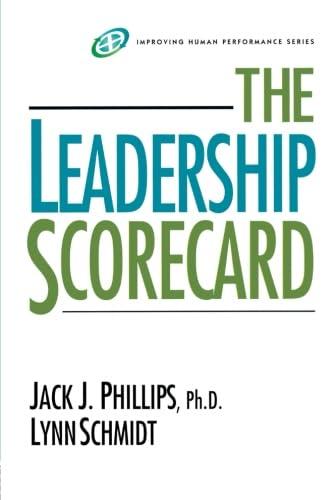1. How have you and your job changed as a result of attending this program (skills and...
Question:
1. How have you and your job changed as a result of attending this program (skills and knowledge application)? Sometimes focus groups are not available or are considered unacceptable for the use of data collection. The participants may not be available for a group meeting or the focus groups become too expensive.
In these situations, it may be helpful to collect similar information via a questionnaire. With this approach, participants must address the same issues as those addressed in the focus group, but now on a series of impact questions imbedded into a follow-up questionnaire.
The questionnaire may focus solely on isolating the effects of a leadership development program, as detailed in the previous example, or it may focus on the monetary value derived from the program, with the isolation issue being only a part of data collected.
This is a more versatile approach for using questionnaires when it is not certain exactly how participants will provide business impact data. In some programs, the precise measures influenced by the program may not be known. This is sometimes the case in programs involving leadership, team building, communications, negotiations, problem solving, innovation, and other types of leadership development and performance improvement initiatives. In these situations, it is helpful to obtain information from participants on a series of impact questions, showing how they have used what they have learned and the subsequent impact in the work unit. It is important for participants to know about these questions before they receive the questionnaire. The surprise element can be disastrous in data collection.
The recommended series of impact questions are:
Step by Step Answer:

The Leadership Scorecard Improving Human Performance Series
ISBN: 9780750677646
1st Edition
Authors: Jack J. Phillips, Lynn Schmidt






